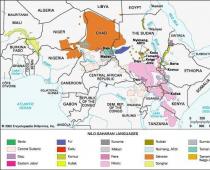Education and the lack of healthy introspection, which encourages not only to look for patterns in your behavior that are negatively perceived by others, but also to eradicate them.
"A sarcastic person" - so they say about those who like to let go of evil jokes. What distinguishes such jokes from humor is the goal: not to amuse the interlocutors and cheer them up, but to morally exalt oneself above those around them.
Causes of behavior
Paradoxically, the angry, snarky person is a product of our society, the result of his inability to resist behavior that already goes beyond polite communication, but is not yet a legal violation.
The human psyche is focused on responding to all signals from the outside world and adapting to it, changing the line of behavior. There are negative and positive reinforcements for this: every time a person receives a worthy rebuff after an evil joke, his desire to continue to behave inappropriately decreases by an order of magnitude.
In the event that he received positive reinforcement in the form of the absence of a negative reaction, his desire to continue to behave caustically increases.
This does not always happen consciously: often a person simply cannot reflect on his own behavior, does not think not only about whether his words can hurt others, but is not interested in the reason why the desire to say offensive taunts arose at all.
Comes from childhood
Until recently, many vices of behavior were justified by improper upbringing or psychological trauma received by a person in childhood. In this light, even the most evil, caustic, insidious person becomes a victim of circumstances and ceases to be responsible for his actions.

Modern psychology is very skeptical about the idea of looking for the causes of behavior in a person's childhood. The psyche of each of us is a very plastic thing, it can easily be changed under the influence of only two factors: motivation (the desire to change something) and steps in this direction.
How does a snarky person behave?
Facing a snarky person is a real test for many people. After all, he is able not only to play a joke, he has the ability to see the hidden complexes of a person, pull them out into the light and present them in a grotesque form.
For example, for a girl who is insecure about the shape of her nose, this type will instantly come up with an unflattering comparison with a cartoon character. He will strive to make a quiet and timid person the center of attention.

Paradoxically, people may unconsciously seek to get close to such a person, thereby trying to protect themselves from witty attacks. But a rare relative of such an individual will not receive his portion of playful insults - this is the line of conduct followed by a caustic person. Signs by which you can recognize a person prone to cruel jokes and ridicule are as follows:
- does not show empathy for other people;
- behaves uninhibitedly even with unfamiliar people or in a business setting;
- accuses politeness of insincerity.
Sometimes you can understand that you have a caustic person in front of you by his behavior, even if his verbal aggression is directed at another interlocutor. There is every reason to believe that sooner or later it will be you who will fall under the scope of his offensive comments.
How to deal with a snarky person?
“Ignore insults, and a sarcastic person will leave you behind, he will become bored of hurting you,” is a popular opinion that reflects reality only partially.
Getting up on the same level with the offender and trying to respond to the attack with a more caustic joke is really not worth it. Firstly, to engage in a duel with a weapon that an evil joker is fluent in means to lose to him in most cases.

Secondly, witticism is a big waste of time, and no caustic person is worth spending precious minutes on him.
The best way to fight is physical distance or emotional separation from that person. That is, getting up and leaving is really the right choice if the offense was inflicted intentionally and in a cruel form, and not an escape from the "battlefield".
Before the distance, you can briefly express a negative attitude to what was said, make it clear that this style of communication is not appropriate, so there is no point in continuing the dialogue. In the event that a caustic person repents and regrets that his wit has hurt an interlocutor who is not indifferent to him, he will certainly let you know about it.
Impact of self-esteem
Reliable armor that no evil joke can overcome is stable and good self-esteem. It is very important to evaluate yourself correctly, not overestimating your own expectations from your person, but not underestimating them either.
A person with stable self-esteem usually looks confident, calm and relaxed. Even in the event that an insult veiled as a joke is released in his direction, he is more likely to be surprised than upset or offended. However, this will not prevent him from moving away from such an interlocutor: after all, the ability to evaluate himself correctly carries a bonus in the form of the ability to correctly recognize the attitude of other people towards himself, without justifying them and without building empty illusions.

emotional distance
It is easy to physically distance yourself from a cruel prankster when he is a casual acquaintance or a new friend. But what if a caustic, treacherous person is your colleague, whose face you see for 40 hours a week? Or, even worse, your immediate supervisor?
In this case, you need to learn to emotionally distance yourself, to close. At the same time, you can continue dry and polite communication with a person at work. But any attempts to transfer the conversation into a personal channel must be firmly but correctly stopped.
If the outrageous behavior of a colleague does not stop, you can and should contact your immediate supervisor to resolve the conflict situation. And if the source of ridicule is the boss himself, it makes sense to think about finding a new job, temporarily putting an internal block on all the jokes he utters.
(colloquial) angry, caustic, treacherous person
Alternative descriptionsAustralian Beast, an egg-laying mammal covered in spines
Australian animal with bag
In ancient Greek mythology - a monstrous creature, half-woman, half-snake
In needles, but not a hedgehog
Animal covered with needles and coarse hair
Evil sarcastic and insidious person
Asp family snake
Spiny marsupial that lays eggs
Mother of the Lernaean Hydra
A small Australian cloacal oviparous mammal with a snout stretched forward, covered with needles and wool.
In a figurative sense: an evil, caustic, insidious person
The monster is a half-maiden-half-snake that gave birth to the Sphinx, Cerberus, Chimera and other nasty things from Typhon
Poisonous Australian snake of the asp family
Australian "porcupine"
Mother of the Sphinx
Monster, half-snake-half-woman in ancient Greek mythology
The mammal with the lowest blood temperature
The name of this snake woman was given to a harmless marsupial
Cerberus, Lernean Hydra, Chimera, Sphinx, Nemean Lion, and what snake unites them?
Mother of the Sphinx, Cerberus and Chimera
Marsupial, body covered with spines, lays eggs
Common name for various venomous snakes before the middle of the 16th century
Harmful type
animal australia
. "harmful" animal
Poisonous snake
snake woman
Evil person (transl.)
Mother of Cerberus
Both a snake and an insidious type
Venomous snake (obsolete)
Mother of the Sphinx
. "malevolent" animal of Australia
Mother Cerberus
wicked man (transl.)
Half-maiden - half-snake
Australian venomous snake
Looks like a small porcupine
Ancient Greek half-maiden half-snake (myth.)
Zlyukazmeyuka
Insidious cunning
black snake australia
Hurt and smile
Mother of the Sphinx and the snake of Australia
Asp crawling across Australia
Australia's venomous snake
Mother of the Sphinx or snake of Australia
australian animal
In Greek mythology, a monster, half-maiden-half-snake, daughter of Phorky and Keto
australian mammal
Angry, caustic, treacherous person
Asp family snake
A small mammal of the monotreme family, whose back is covered with sharp needles.
. Australia's malevolent animal
. "harmful" animal
Australian "porcupine"
Zh. scientists called so the category of poisonous snakes. Elaps Naia; the spectacled snake of the Asiatic buffoons; also the snake Coluber berus; about. evil, evil person. See also hedgehog, hedgehog. Echidno, evil, vicious and crafty. Ekhidstvo cf. wickedness, wickedness, wickedness. Echidnov, echidnin, echidna belonging. To sneer or sneer, to be spiteful, to desire and to do evil, deliberate, crafty. FUCK that arch. to move, to pull, to push back and forth, to move. -sya, move, move away, start moving. pl. pitches. chest, heart, breath, soul or heart in the same meaning. Dropped off the cheeks, hurt his chest. See click
Womansnake
Common name for various venomous snakes before the mid-16th century
Half-maiden - half-snake
Cerberus, Lernean Hydra, Chimera, Sphinx, Nemean Lion, and what snake unites them
Australian animal with needles
Not a person, but a terrible ulcer
An arrogant, deceitful person
treacherous man
- (Echidna) - a genus of mammals from the order of monotremes (Monotremata; about the remarkable features of this order, to which, in addition to E., only the platypus belongs, see Monotremes). Encyclopedic Dictionary of Brockhaus and Efron
ECHIDNA
ECHIDNA
(Greek echidna). 1) mythological creature, half woman, half snake. 2) some types of snakes. 3) a malicious, crafty person who hides his anger under the guise of kindness, affection.
Dictionary of foreign words included in the Russian language. - Chudinov A.N., 1910 .
ECHIDNA
1) a mammal animal; mouth in the form of a beak, without teeth; feeds on insects, lays eggs; 2) poisonous snake; 3) in Greek. mythologies: monster, half-woman, half-snake; 4) portable. value - an evil, treacherous, cruel person.
A complete dictionary of foreign words that have come into use in the Russian language. - Popov M., 1907 .
ECHIDNA
Greek echidna. a) A venomous snake. b) An evil and crafty person.
Explanation of 25,000 foreign words that have come into use in the Russian language, with the meaning of their roots. - Mikhelson A.D., 1865 .
Echidna
(gr.)
1) in ancient Greek mythology - a monstrous creature, half-woman, half-snake; trans. evil, treacherous person;
2) echidnas - family. oviparous mammals, common in Australia, on the islands of Tasmania and New Guinea;
3) echidnas - a genus of poisonous snakes family. aspids, common in Australia and on the island of New Guinea.
New dictionary of foreign words.- by EdwART,, 2009 .
Echidna
echidnas, [Greek echidna]. 1. A small Australian monotreme animal covered with spines (zool.). 2. Poisonous Australian snake. 3. trans. An evil, caustic, treacherous person (colloquial, swearing). І Echidna of enmity, envy, etc. (poet.) - fierce, malicious enmity, envy, etc.
A large dictionary of foreign words. - Publishing house "IDDK", 2007 .
Echidna s, well., shower ( Greek echidna snake).
1.
A small oviparous mammal, covered with needles and wool, found in Australia and the Pacific Islands.
2.
Poisonous Australian snake.
|
In ancient Greek mythology, e. is a monster, half-woman, half-snake.
3.
trans., unfold An evil, caustic and insidious person.
Explanatory Dictionary of Foreign Words L. P. Krysina.- M: Russian language, 1998 .
Synonyms:
See what "ECHIDNA" is in other dictionaries:
See Zlyuka Dictionary of synonyms of the Russian language. Practical guide. M.: Russian language. Z. E. Alexandrova. 2011. echidna n. viper echidina ex ... Synonym dictionary
ECHIDNA, echidnas, wives. (Greek echidna). 1. A small Australian monotreme animal covered with spines (zool.). 2. Poisonous Australian snake. 3. trans. An evil, caustic, insidious person (simple, abusive). “The postmaster was known for a great ... ... Explanatory Dictionary of Ushakov
1. ECHIDNA, s; well. [Greek echidna] 1. A large venomous Australian snake of the fam. asps. // Deprecated. Poisonous snake. 2. Expand. About an evil, caustic, insidious person. And what the hell are you! How much evil did this e. 3. In Greek mythology: a monster ... ... encyclopedic Dictionary
- (Echidna), in Greek mythology, a half-maiden half-snake monster that gave birth to the Sphinx, Cerberus, Chimera and others from Typhon. In a figurative sense, an evil, treacherous person ... Modern Encyclopedia
- (Echidna) in Greek mythology, a half-maiden half-snake monster, who gave birth to the Sphinx, Cerberus, a chimera, etc. from Typhon. In a figurative sense, an evil, treacherous person ... Big Encyclopedic Dictionary
ECHIDNA, s. 1. female A small Australian oviparous mammal of the cloacal order with a muzzle stretched forward, covered with needles and wool. 2. female Poisonous Australian snake family. asps. 3. husband and wives., trans. Evil caustic and insidious ... ... Explanatory dictionary of Ozhegov
Female scientists named so the category of poisonous snakes. Elaps Naia; the spectacled snake of the Asiatic buffoons; also the snake Coluber berus; | ·about. evil, evil person. | See also hedgehog, hedgehog. Echidno, evil, vicious and crafty. Ekhidstvo cf. malice, wickedness, wickedness ... ... Dahl's Explanatory Dictionary
- (Echidna) a monster, a half-maiden half-snake, who gave birth to a number of monsters from Typhon: the Sphinx, Cerberus, the Nemean lion, Orff, a chimera, etc. From Hercules (or Zeus) she gave birth to a Scythian. // Alexey FANTALOV: Offspring of Echidna (
- In contact with 0
- Google+ 0
- OK 0
- Facebook 0








